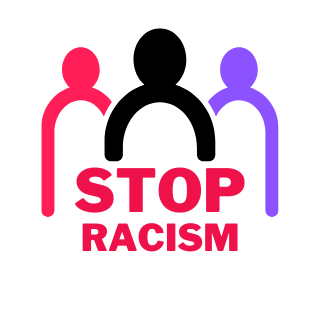The data on racist attacks in Greece – The “hidden” wound of ableism – “Reality out there is dystopian”, says Michalis Lolis, Head of the Department for Racist Violence
Last year, the Department for Combating Racist Violence of Attica received 283 reports of incidents involving racist violence. From these, 165 criminal case files were formed. The motives? The most common target was the sexual orientation of the victims in these racist attacks, while the category of ableism (attacks against persons with disabilities) is both shocking and concerning.
The number of recorded cases (with the “dark number” of those that never reached the authorities likely much higher) shows that 38 incidents were related to sexual orientation, 25 to national or ethnic origin, 17 to gender identity or characteristics, 4 to religion, 3 to disability, and 3 to skin color. However, these numbers represent only the tip of the iceberg, as conversations with the report’s authors and the conclusions of subject-matter experts confirm that racism and hate speech are widespread in Greek society.
Many crimes go unreported
The above victims often include people with disabilities, who must confront not only social exclusion but also racist violence, and are frequently targeted by hate speech. As Michalis Lolis, Police Lieutenant and Head of the Department for Combating Racist Violence, says:
“Among the incidents our department recorded last year were three involving people with disabilities. Two cases involved individuals with intellectual disabilities and one with a mobility impairment. Two of the three were very serious. One involved sexual abuse and the other the trafficking of a person with intellectual disability. While only three cases reached us, as we all know, the real situation out there is more dystopian and difficult. We’re dealing with the issue of underreporting – many crimes are simply never reported. Something must be done, both by the police and the disability community, to increase case reporting.”
He adds, “Our main issue is that people with disabilities don’t come to us to file reports. As a department, we operate the 11414 phone line, which people can call to report racist incidents. We are a service that would like to be better known to the disability community. We want people to come forward and report incidents of violence against them. Even if it’s just discrimination, we can guide them through how to address such issues.”
“I have personally faced this kind of racism”
Odysseas Savvopoulos is now 50 years old. At 18, he was a high school student living in Edessa when one night, on his way home, he had an accident that changed his life forever. When he regained consciousness hours later in the hospital, he discovered that he had lost his right leg from the knee down.
“Since then, I’ve lived the reality of a person with a disability”, he says.
Asked if he’s experienced hate speech due to his disability, his answer is immediate: “Several times”.
“I will never forget one summer when I was at the beach and a family asked me to leave because my amputated leg was ‘bothering’ their children”, he recounts.
“In my personal relationships too, I’ve faced ableist discrimination. I’ve had former partners belittle me with words like ‘cripple’, and I’ve learned that people in their social circles advised them to leave me because I wasn’t ‘whole.’ Even well-meaning people sometimes ask why I don’t hide my prosthetic, since I walk so well.”
Exclusion is racism
“A person with disabilities can be a victim of both overt and covert racism and intolerance”, says Ioannis Vardakastanis, President of the National Confederation of Disabled People.
“This is a daily reality. There are many incidents, and it doesn’t surprise me that people with disabilities are among the victims of racist violence and hate speech. These incidents may not always be reported or visible, but they certainly exist. Disability and racism, unfortunately, go hand in hand. That’s why we talk about ableism—a phenomenon that may not always be intense, but it exists, especially in closed societies. It’s even more pronounced against women and girls with disabilities. Wherever there is exclusion, these phenomena arise. And isn’t exclusion the harshest form of racism?”
It’s worth noting that a special report by the Greek Ombudsman on Equal Treatment states that 14% of all complaints filed related to discrimination based on disability or chronic illness—making it the second most common category of reported discrimination. Additionally, in the Ombudsman’s report titled “The phenomenon of racist violence in Greece and how to address it”, it is highlighted that:
“Unfortunately, there is a rise in cases where parents attempt to prevent or oppose the enrollment of certain students in schools (due to origin, disability, or special educational needs), or create disruptions to school operations in other ways.”
Hate speech on the Internet
While ableism in society may often take subtle forms, on the Internet it is unchecked.
As Loula Verbi, pediatrician and developmental specialist, explains:
“My oldest son, Yiannis, is 17 years old and has a disability. What I want to highlight is the problem with the Internet. Many individuals with disabilities have access to the Internet, often without guidance or knowledge on how to block users or report hate speech. What I’ve seen, especially on TikTok, is that hate speech targeting people with disabilities is terrifying.”
Ms. Verbi adds:
“The comments under posts made by these individuals are often tragic. In society, this kind of racism may be indirect, but on social media it’s uncontrolled. I’ve seen young people suffer from anxiety and develop self-deprecating behaviors due to the hate speech they’re exposed to online—speech they often don’t feel safe talking about even with their parents.”
Structural and institutional causes
It is no coincidence that in recent years, experts frequently use the term ableism to describe the distinct treatment that large parts of society exhibit toward people with disabilities.
“Ableism refers to behaviors and practices that segregate, oppress, or abuse disabled individuals. Its causes are structural and institutional. It is rooted in cultural values that idealize normalcy, reducing disabled individuals to a status less than fully human”, says Giota Karagianni, Professor in the School of Primary Education at Aristotle University of Thessaloniki.
She adds that today, ableism is intensifying through the promotion of ableist rhetoric often supported by extreme political positions or controversial economic arguments. Within this framework, the shrinking welfare state and reduced public spending find justification in demonizing people with disabilities as obstacles to economic development.
Regarding hate speech online, Prof. Karagianni notes:
“The scale, reach, and anonymity of online communication make it far easier for ableism to be expressed. However, the same medium also provides opportunities for connection and mutual support among people with disabilities.”
“I will never forget the hatred in their words and faces”
According to police data, last year saw a significant spike in incidents targeting LGBTQ+ individuals. A key trigger appears to have been the public debate around the Equal Marriage Law. The rise in hate speech led to several isolated physical assaults, as homophobic motives and prejudices were amplified in public discourse.
“In September, I was out with a friend at a gay bar in the Kerameikos area”, recounts Mr. Giorgos Voglis, 45.
“Around 4 am we left the bar and started walking down Konstantinoupoleos Street. Suddenly, four young men began to hurl crude insults at us. My friend made the mistake of responding, and they started approaching us aggressively. I will never forget the hatred in their words and faces”, he continues.
“Luckily, a large group exited a nearby bar, and the attackers left. It was the first time I truly felt my physical safety was at risk. I had experienced mocking comments before, but this was different. It was terrifying. I’ve heard similar stories from my friends. It’s tragic that in this day and age, a gay man can’t feel safe walking through the heart of Athens.”
It’s worth noting that in March 2024, two LGBTQ+ individuals were attacked by a large group in Thessaloniki. Victim accounts revealed that some of the assailants were teenagers and young adults. Arrests were made, and charges filed.
Also noteworthy: in 2020, a study by youth organization Colour Youth revealed that the situation for LGBTQ+ youth in Greek schools “remains appalling.” Researchers documented shocking testimonies, including statements from teachers to intersex students (e.g., “you shouldn’t exist”). LGBTQ+ students frequently fall victim to attacks and hate speech both inside and outside school, yet often hesitate to report these incidents to parents or teachers. An online survey the same year showed that 27% of LGBTQ+ individuals reported experiencing discrimination in public services due to their gender identity or sexual orientation. However, only 7% filed formal complaints, and 72% said they do not feel safe reporting such incidents.
“Generally speaking, I can’t say I feel very safe”
Mr. Ahmed Oundal, from Pakistan, has lived in Athens for 15 years and runs a barbershop in Peristeri.
He says he’s been attacked several times—by both Greeks and other foreigners.
“A few months ago, two Albanians attacked me in Petroupoli. But I’ve also often been attacked by Greeks calling me things like ‘illegal’ and ‘monkey’. At my shop, I have another Pakistani employee who was beaten badly last summer in downtown Athens by three men. Honestly, I can’t say I feel very safe. But most of my customers are Greek. Maybe because we offer better prices at Pakistani barbershops.”
Ms. Flora, 45, of Albanian origin, has lived in Athens for 22 years and works as a house cleaner.
“I’ve worked in homes where I was treated very well, but also in others where I was made to feel bad about my background. People often say things like, ‘You know how Albanians are’, to insult us. I usually nod along, but inside I’m angry. The biggest problems we face are in public services, where we’re treated like second-class citizens.”
It’s important to note that a significant portion of offenses against migrants are committed by young people and minors, revealing a troubling rise in youth and juvenile delinquency, especially in school settings.
Additionally, many victims refuse to press charges, resulting in no official case files being created. This leaves many incidents unrecorded, and perpetrators act with impunity, knowing they’re unlikely to face consequences. This environment normalizes their actions and contributes to a serious social problem that disproportionately affects vulnerable groups.
Source: https://www.tovima.gr/print/society/ta-prosopa-lf-tou-ratsismou/


Leave a Reply